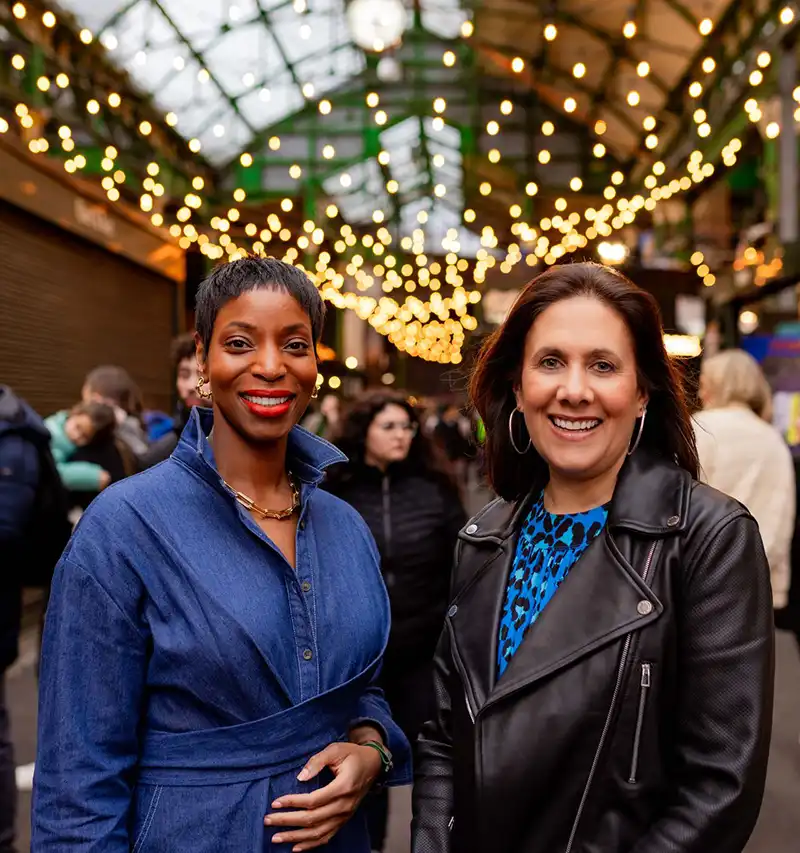
INTERVIEW
Charlotte Harrington
Belu
Sustainable beverage business Belu was doing well by doing good long before it was fashionable. A social enterprise launched in 2007, its purpose is to change the way the world sees water. It’s donated all of its profits since 2011 to Water Aid, in a partnership fixed until 2030.
There are two main sides to the business: bottled water, sold through wholesalers to the hospitality sector, and the installation, maintenance and lease of filtered hot and cold water taps for both hospitality and workplaces. Belu turned over £8.9m in 2023, and grew at a CAGR of 78% over Growth Index’s reporting period.
Co-CEO Charlotte Harrington explains how conscious capitalism and growth can go hand in hand.
What’s behind Belu’s growth, beyond the post-Covid hospitality rebound?
During Covid, our business-as-usual more or less disappeared. We could have closed down or hibernated by putting everyone on furlough. Instead, we took the time to re-evaluate the role Belu could play, and concluded that now was our moment.
We’d been a £5m-£6m business for the four years before Covid, but we started asking, “What if we did things differently?” From that came new product development, such as our mixers range, which we launched in the middle of lockdown.
We also launched our filtration business in Hong Kong in 2021, after an enquiry the previous year from Mandarin Oriental. Before, we might have said said, “Sorry, but we don’t export.” But we believed we could maximise this opportunity and secured additional funding from our original investor.
How do you make your purpose central to decision making?
Firstly, it’s a privilege to lead a business that genuinely can live its purpose. It’s why we’ve always existed, rather than something retrofitted onto the organisation. Secondly, we use a decision-making framework based around four Ps: purpose, people, planet and profit, in that order. For example, lots of opportunities come our way that would be loss-making. I come from retail, where loss-leading is a common way to drive footfall. But we can’t deliver social and environmental impact without making a profit: we are a business, not a charity. It’s just that what we do with our profits is different.
How central is your purpose to your competitive proposition?
People want to procure from businesses that give them a story to tell their clients and employees. As a social enterprise, we can give them that. Our product and service are second to none. And while we are not the cheapest, we are still competitive on price. For us, it’s about brand awareness: we just need to be in the consideration set.
What’s the role of transparency in leading with purpose?
Transparency is critical, it’s in our DNA. We publish an annual impact report, with our independently verified carbon footprint over 10 years, and fully audited financials, even though we’re not required to as a small business.
It’s important to talk honestly about what we do and what we don’t, and why. At the moment for example, the demon for bottled water is plastic, but if you look at the data, unless you’re refilling then a recycled plastic bottle [of the kind Belu uses] is much less carbon intensive than cartons, cans or glass.
There’s so much greenwashing, so this is a reality check. We’re aiming for a zero-carbon future. We don’t know how we’re going to get there yet, but we’re doing everything we can to figure it out.
What’s next for the business?
The market is moving towards removing single-use packaging wherever possible, so filtration and refillables are a natural place for us.
We’ve just recruited someone to be based permanently in Hong Kong. It’s a small part of the business currently but is already profitable. If we can replicate that four or five times that would be amazing. We’re taking a city-based approach to global expansion, looking for thriving independent hospitality scenes where there’s an interest in provenance and environmental impact. Those early adopters have been our massive supporters in the UK, and we know they’ll understand us in any country.
We also know that the UK market is still massive, and we’re such a small part of it so we need to stay focused on that opportunity as much as on global growth.

